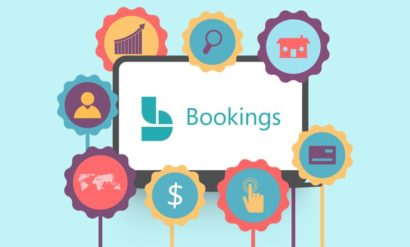What G Suite Is and How It Helps Business
Business collaboration is the norm, whether everyone is working in the same office space or not. Providing the latest technology for knowledge sharing and communication is critical. G Suite is a cloud-based solution enabling effective collaboration through flexibility, productivity, and transparency.
A few decades ago, workers would be expected to answer phones, rip open physical mail, track faxes, and meet in-person with colleagues in the office. With the digital transformation, more of what we do is online. Adding email, file sharing, video conference calls, and chat could have overwhelmed us. Then came the business collaboration platforms streamlining workflow in a single solution. One of these is G Suite.
G is for Google in the case of G Suite. It’s Google cloud’s bid to compete with the likes of Microsoft’s Office 365. G Suite aims to make “working together a whole lot easier.” It combines productivity and collaboration tools around:
- Connection – Gmail, Google Hangouts (chat and video conferencing), Google Calendar
- Access – Google Drive, Google Cloud Search
- Creation – Google Docs, Spreadsheets, Forms, Slides, Websites, App Scripting, and more.
- Control – Administration Settings, Analytics, Mobile Device Management, Data Storage.
What G Suite Offers Your Business
Having G Suite gives your users an ad-free enhanced version of the features they may already use. For instance, instead of emailing from johnsmith@gmail.com, John could send from the professional domain jobnsmith@yourbusiness.com, and he’s no longer being distracted by email advertising.
“Gmail has a whopping 26% of email market share based on open rates” – Litmus
Since G Suite integrates with Calendar, it’s easy for John and his colleagues to plan meetings. People can share their calendars to enable scheduling, and they can hold the meeting in Google Hangouts. At the same time, users don’t have to share every appointment on their calendar with colleagues.
G Suite calendar allows users to create many calendars with different settings. Maybe one is private, another is only visible to certain people (you and your assistant), and yet another is public so that the entire company can see.
Anyone who has used Microsoft Word or Excel will quickly adapt to Google Docs and Sheets. It’s even possible to import Microsoft files into Google, then export them again into .docx or .xls files.
Yet on Google’s cloud platform, users can share files in real-time online. People can work together on the same file, at the same time, regardless of where they are actually located. This eliminates time wasted sending attachments and consolidating comments.
While work is in progress, or after you move on, you don’t have to worry about the files disappearing. Basic G Suite users get 30GB of storage. Business and Enterprise users have access to unlimited cloud storage and archiving. This lets a business store all its files in a secure, centralized location. A Google’s Cloud Search searchable one for Business and Enterprise users.
The administrative control offered is another reason to pay for G Suite. A business can manage all its user accounts from a single dashboard. You no longer have to worry about someone leaving and refusing access to their Gmail files.
With G Suite, you can go into the administration console and take control. Easily add and remove people. Plus, access management is easier with one dashboard to assign roles and rights. You can also manage mobile devices and set up two-factor authentication for greater security.
Still sound overwhelming for your small-to-midsized business? A managed services provider can help get you set up on G Suite. This secure, simple-to-use cloud platform can help you work smarter and faster.
Call us at (615) 522-0080 to get started!

Safe Network Solutions is a technology consulting firm located in Nashville, TN. We are focused on reducing our Clients’ stress and the time they spend handling IT related issues. As technology has become more integrated with daily business tasks, downtime is not an option. Whether your systems reside on-premise, in the cloud, or in a hybrid setup, you need a partner with expertise in a wide array of technologies, with a security focus.


